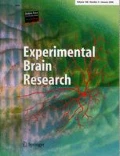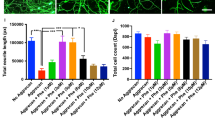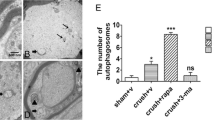Abstract
Several hundred thousand peripheral nerve injuries occur each year in Europe alone. Largely due to the death of around 40% of primary sensory neurons, sensory outcome remains disappointingly poor despite considerable advances in surgical technique; yet no clinical therapies currently exist to prevent this neuronal death. Acetyl-l-carnitine (ALCAR) is a physiological peptide with roles in mitochondrial bioenergetic function, which may also increase binding of nerve growth factor by sensory neurons. Following unilateral sciatic nerve transection, adult rats received either one of two doses of ALCAR or sham, or no treatment. Either 2 weeks or 2 months later, L4 and L5 dorsal root ganglia were harvested bilaterally, in accordance with the Animal (Scientific Procedures) Act 1986. Neuronal death was quantified with a combination of TUNEL [TdT (terminal deoxyribonucleotidyl transferase) uptake nick end labelling] and neuron counts obtained using the optical disector technique. Sham treatment had no effect upon neuronal death. ALCAR treatment caused a large reduction in the number of TUNEL-positive neurons 2 weeks after axotomy (sham treatment 33/group; low-dose ALCAR 6/group, P=0.132; high-dose ALCAR 3/group, P<0.05), and almost eliminated neuron loss (sham treatment 21%; low-dose ALCAR 0%, P=0.007; high-dose ALCAR 2%, P<0.013). Two months after axotomy the neuroprotective effect of high-dose ALCAR treatment was preserved for both TUNEL counts (no treatment five/group; high-dose ALCAR one/group) and neuron loss (no treatment 35%; high-dose ALCAR –4%, P<0.001). These results provide further evidence for the role of mitochondrial bioenergetic dysfunction in posttraumatic sensory neuronal death, and also suggest that acetyl-l-carnitine may be the first agent suitable for clinical use in the prevention of neuronal death after peripheral nerve trauma.
Similar content being viewed by others
Author information
Authors and Affiliations
Corresponding author
Rights and permissions
About this article
Cite this article
Hart, A.M., Wiberg, M., Youle, M. et al. Systemic acetyl-l-carnitine eliminates sensory neuronal loss after peripheral axotomy: a new clinical approach in the management of peripheral nerve trauma. Exp Brain Res 145, 182–189 (2002). https://doi.org/10.1007/s00221-002-1100-2
Received:
Accepted:
Published:
Issue Date:
DOI: https://doi.org/10.1007/s00221-002-1100-2




